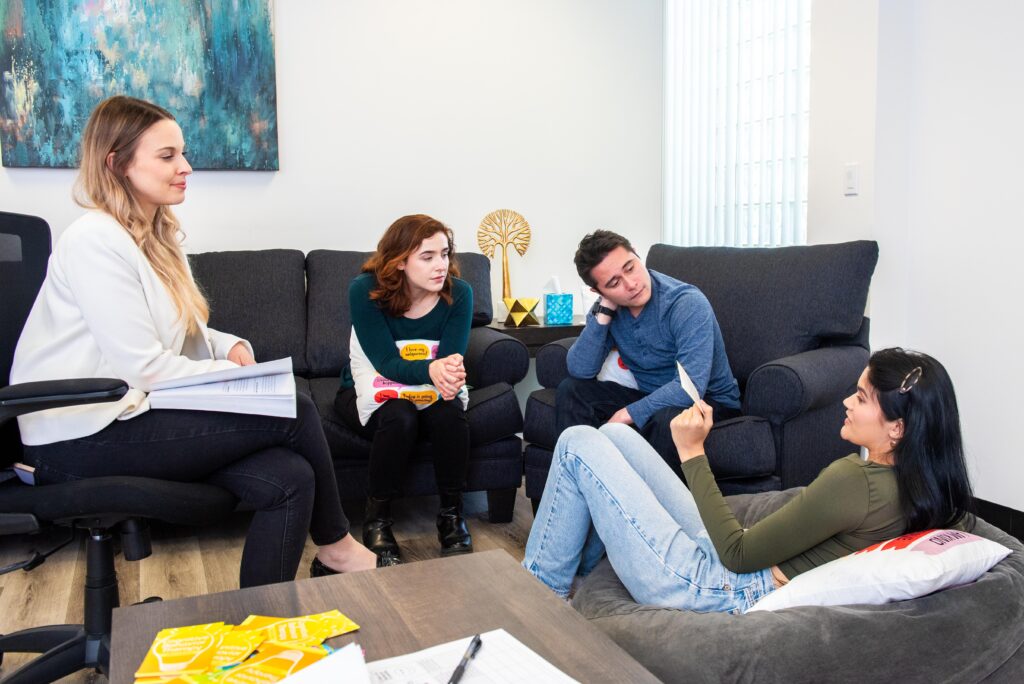Finding Meaning and Purpose After Loss
Grief is a universal human experience, yet it remains one of the most complex and challenging aspects of our emotional lives.
It is a journey that is deeply personal, often unpredictable, and unique to each individual.
At The Meadowglade, we know how important it is to offer the right support and treatment for grief and loss. It allows us to provide effective support and guidance to those navigating this difficult time.
Our goal is to explore practical strategies for coping with grief and loss, and the importance of finding meaning and purpose in the aftermath of loss.
Understanding Grief and Its Multifaceted Impact
Grief is a multifaceted response to loss, particularly to the loss of someone or something that has died, to which a bond or affection was formed.
It is a complex blend of emotional, physical, cognitive, and spiritual reactions.
While grief is often associated with feelings of sadness, it can also manifest as anger, guilt, anxiety, or even relief.
Physically, grief can lead to changes in appetite and sleep patterns, fatigue, or somatic complaints.
Cognitively, it can affect concentration, decision making, and even our sense of time.
The Psychological Processes of Grieving
The psychological processes of grieving are complex and varied.
Grief can involve denial, bargaining, sadness, and acceptance. This is outlined in Elisabeth Kübler-Ross’s famous model known as the stages of grief.
However, it’s important to note that not everyone will experience all these stages or in a specific order. Each person’s experience is distinct, shaped by their relationship with the lost individual or situation, cultural background, and personal coping mechanisms.
Physical and Cognitive Reactions to Loss
Physical reactions to loss can include fatigue, changes in appetite, sleep disturbances, and other somatic complaints.
Cognitive reactions can involve difficulty concentrating, preoccupation with the loss, and intrusive thoughts or images related to the reason for grief.
Understanding these reactions can help counselors provide more effective support and interventions.
The Role of Culture and Community in Grieving
Culture and community play significant roles in how grief is experienced and expressed.
Mourning rituals, beliefs about death and the afterlife, and community support can all influence the grieving process.
As counselors, it’s crucial to be sensitive to these cultural and community factors when supporting individuals in their grief journey. Our Meadowglade team makes sure to make a personalized plan that fits the client’s needs and cultural background.

Navigating the Healing Journey
The healing journey after a loss is a deeply personal and unique process.
It involves navigating through a range of emotions, making sense of the loss, and gradually adjusting to a new reality.
Counselors can play a crucial role in this journey, providing a safe space for individuals to express their feelings, explore their grief, and find ways to cope.
They can also provide guidance and support in developing effective grief recovery strategies.
Ultimately, the goal is not to eliminate grief, but to help those going through this time, live with their loss and find a way forward.
Stages of Grief: A Non-Linear Path
The stages of grief provide a useful framework for understanding the grieving process. However, it’s important to remember that grief does not follow a linear path.
While the five stages of grief are widely known and referenced, some experts argue that they can be misleading.
The reality is that grief can manifest in unpredictable ways, and there’s no certain path to healing. This underscores the importance of recognizing that there is no ‘right’ way to grieve; rather, it invites individuals to embrace their unique emotional journey without the pressure of fitting it into a predefined framework.
Developing Coping Skills for Grief
Coping skills for grief can include a range of strategies, from expressive writing and mindfulness practices to engaging in meaningful activities.
These skills can help individuals manage their emotions, find comfort, and gradually adjust to their loss.
Therapists can play a key role in helping individuals identify and develop these coping skills.
Grief Recovery Strategies and Support Systems
Grief recovery strategies can involve mental health professionals, group therapy, bereavement counseling, and community support networks.
These modalities allow space to explore what can help you on your individual journey with grief. Having multiple options that explore ways of coping with something so complex and heavy is key.
Fostering Emotional Resilience and Growth
Emotional resilience is the ability to adapt and recover from adversity.
In the context of grief, it involves finding ways to cope with the pain of loss while also finding a path forward. Moving forward doesn’t mean forgetting or ignoring your grief but instead finding resources to help you get through tough days. At The Meadowglade, we honor that two things can be true at once – your path with grief is going to be full of good and tough days. Embracing your ability to be resilient leads to growth.
We help foster this resilience by providing emotional support, teaching coping skills, and facilitating the process of meaning-making.
Post-traumatic growth is when someone experiences positive psychological changes after dealing with difficult life situations.
In the context of grief, it involves finding new meaning and purpose after a loss.
Implementing Grief Recovery Strategies
Grief recovery strategies can vary widely, depending on your needs and circumstances.
Counselors can help individuals identify the strategies that are most likely to be effective for them and provide guidance on how to implement these strategies in their daily lives.
Individual and Group Therapy Approaches
Individual therapy can provide a safe and supportive space for individuals to explore their grief and work through their feelings of loss.
Group therapy, on the other hand, can provide a sense of community and shared understanding among those who are grieving.
Both approaches can be effective, and luckily can be paired together in the right treatment plan for you.
Embracing the Journey Ahead
Coping with grief and loss is a deeply personal and often challenging journey.
Yet, with the right strategies and support, individuals can find new meaning, purpose, and resilience in the aftermath of loss. If you or someone you love is struggling with grief, don’t hesitate to reach out to our team at The Meadowglade. We can provide you with the needed support and resources to find yourself again after a loss.

